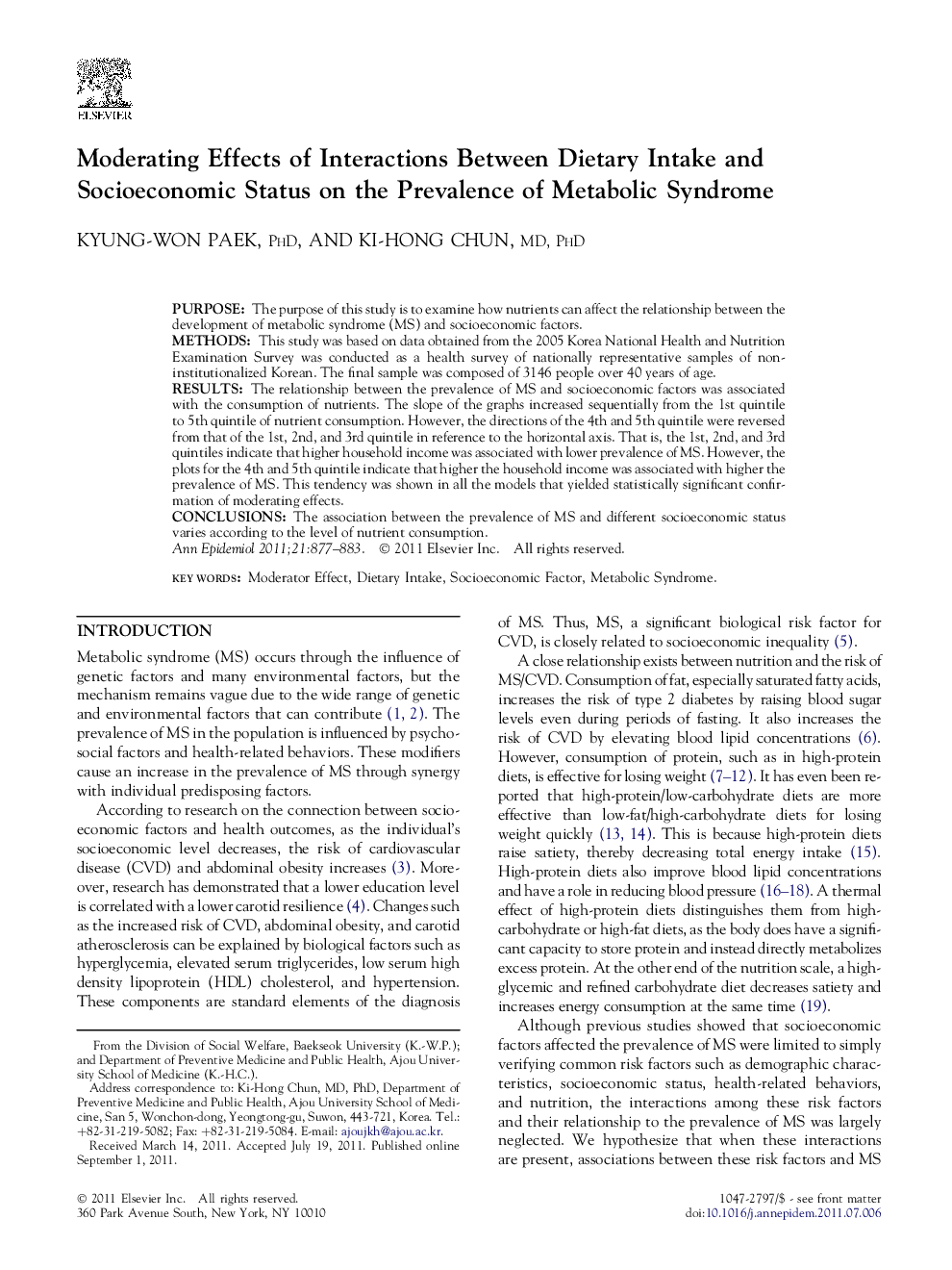| Article ID | Journal | Published Year | Pages | File Type |
|---|---|---|---|---|
| 3444844 | Annals of Epidemiology | 2011 | 7 Pages |
PurposeThe purpose of this study is to examine how nutrients can affect the relationship between the development of metabolic syndrome (MS) and socioeconomic factors.MethodsThis study was based on data obtained from the 2005 Korea National Health and Nutrition Examination Survey was conducted as a health survey of nationally representative samples of non-institutionalized Korean. The final sample was composed of 3146 people over 40 years of age.ResultsThe relationship between the prevalence of MS and socioeconomic factors was associated with the consumption of nutrients. The slope of the graphs increased sequentially from the 1st quintile to 5th quintile of nutrient consumption. However, the directions of the 4th and 5th quintile were reversed from that of the 1st, 2nd, and 3rd quintile in reference to the horizontal axis. That is, the 1st, 2nd, and 3rd quintiles indicate that higher household income was associated with lower prevalence of MS. However, the plots for the 4th and 5th quintile indicate that higher the household income was associated with higher the prevalence of MS. This tendency was shown in all the models that yielded statistically significant confirmation of moderating effects.ConclusionsThe association between the prevalence of MS and different socioeconomic status varies according to the level of nutrient consumption.
